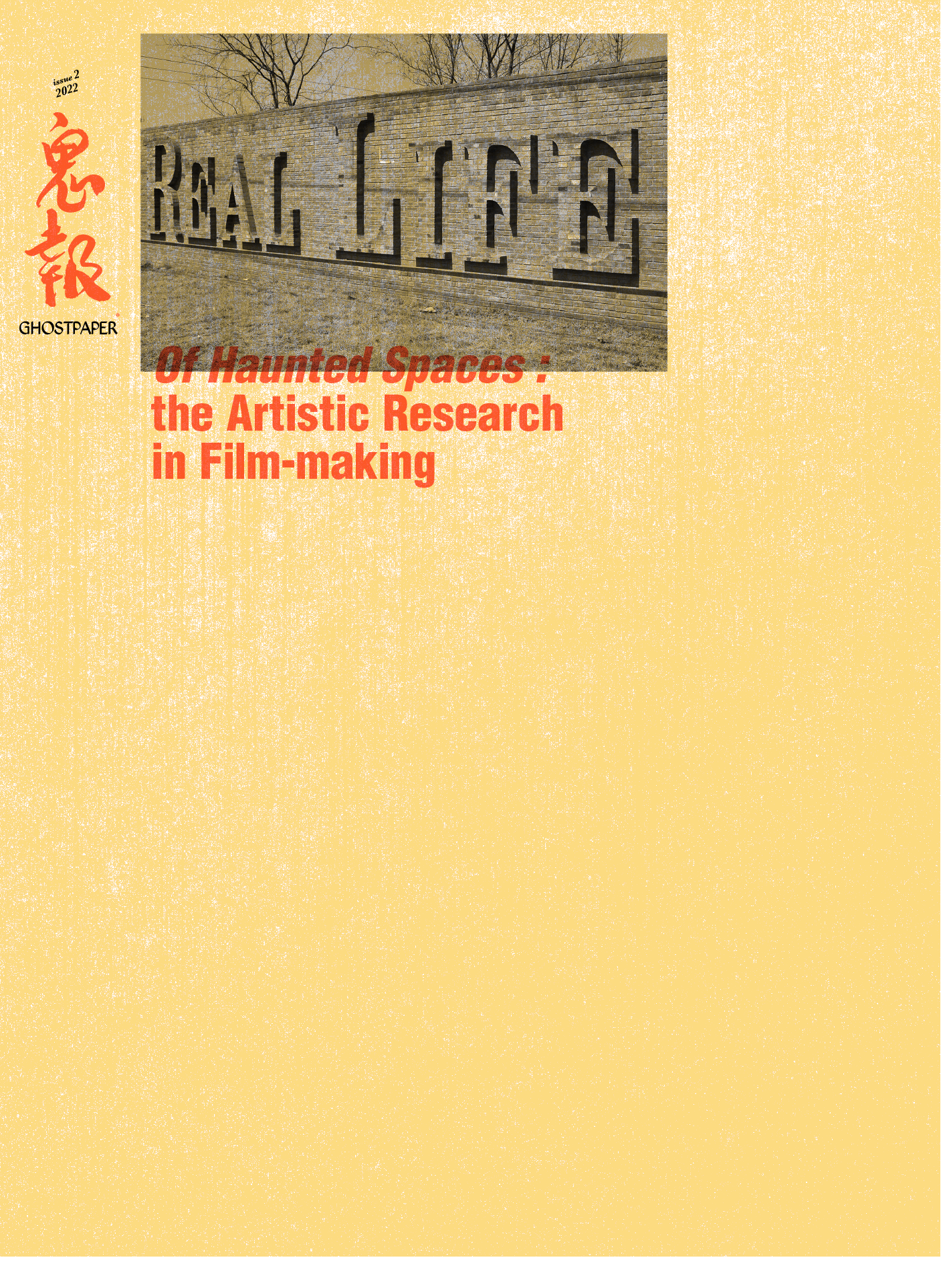Of Haunted Spaces
Of Haunted Spaces is an artistic research project conducted into Chinese ghost cities. It interprets the paradoxical urban phenomena where cities are built for millions, but not lived in. The research process is presented through the publication of Ghost Paper, a reference to the traditional Chinese joss paper that is burned as an offering to the dead. The first issue used a newspaper format that can be unfolded into a poster. This online version uses the reference to the traditional papers to connect the online with the offline world, the imaginary and the real world, to reveal the effects of capitalism that are haunting our living conditions. Ghost cities are built to trigger economic growth, fostered by the dreams and fantasies of governments, real estate agents, and companies, based on the workings of invisible capital. These cities are part of the desire machine of the cognitive capitalist ghost. Cognitive capitalism means that the flow of capital regulates thoughts, minds, and desires, which eventually deal with the construction of the future. The ghost paper as visual mediation underlines the fable of the excess that demands constant progress and growth by an invisible force.
How can we interpret the urbanscapes affected by the consequences of global capitalism in terms of the cinema experience? This project comments on the politics of art and the production of knowledge as an epistemological break—in a sense a true trans-disciplinary approach—which in turn defines what and how we know. It is necessary to put together these hidden stories scattered in our literatures, visual cultures, daily routines, urban legends, and so forth as a way to cope with a global scale of shifting politico-economic power distilled into the haunted places of ghost cities.
From 2016 to 2019, I embarked on this research project funded by the Austrian Science Fund (Elise-Richter PEEK Programme)1 making several field trips to various locations in China that have been reported as ghost cities. These places are indicated on a map, but what counts in this research is neither this fact nor the ghost city index, nor the amount of concrete and steel that is used to build these places, but how these sites are affecting the body and living conditions. The performative is being researched in the everyday, the slogans of real estate agents, the movements in emptiness, the sounds of destructions, or the silence of the eerie places.
The aim was not only to document the sites, but rather to play the sites with performative acts to elevate them as a stage for inquiry. The performers are either people on the streets that are involved in the maintenance or promotion of the real estate, such as construction workers, cleaning personnel, or security guards, or they are protagonists who are playing the site for the writing of the film script. These characters embody the idea of performing as an act of ‘staging questions’. I am referring to Bertolt Brecht, who considered protagonists an ‘empty stage, where the contradictions of the society are acted out’ (quoted in Benjamin 2003: 8). A site and a character can be such a stage from which to raise questions in filmmaking, rather than finding facts, documents, or explanations. Brecht’s method of epic theatre translates the complex reality of a capitalist society not as a mere reflection or documentation but as ‘something that must in fact be built up, something artificial, posed’ (quoted in Benjamin 1999: 526). For my research, this means that I can approach the fictional reality of capitalist societies through the staging of questions in the form of performative acts.
Reflexive ethnology is the method for the field research, which destabilizes the hierarchy among the observers, ethnographers, and individuals who own local knowledges. In short, I use this to create the traversal effect between the object and the subject, so that the writing on the other—in the sense of traditional ethnography—can be on the self. Together, the maps, the performances, the short films, and the commentaries show the ‘making-of’ the research as much as the presentation of the research process, and the process of recruiting actors, actresses, and crews. Most of all, the involved protagonists become filmmakers, in which the fictionality of film becomes a document of their real life. As a researcher I am enchanted by the mirror image of China’s ghost cities, which in turn is a global phenomenon beyond any cultural measurement. New ghost cities appear to be utopias as well as heterotopias, being the norm production of today’s speculative economy.
The process of the research was to create a narrative for an essay film that is not a straightforward documentary but a performative one, which combines acting and re-enactments in between the real and the fictional, showing the effect of cognitive capitalism. In order to present the urban and social reality, the film is conceptualized in a reflexive mode, always revealing the process of its own making. To create performative acts it was necessary not only to find the locations, but also protagonists that can act, act out, or re-enact. This exposition reveals the photos and videoclips that were taken, conversations conducted, castings arranged, and scenes staged in order to create the narrative of the film A Pile of Ghosts (2021). The poetics of making and researching this film are devised as the meta-critique in bringing together the imaginary and the real world.
By Ella Raidel
